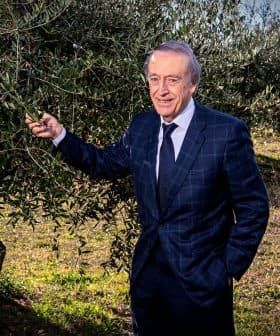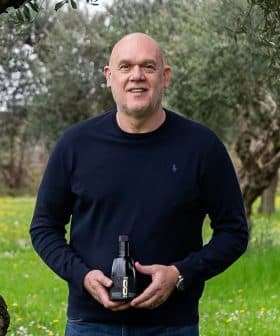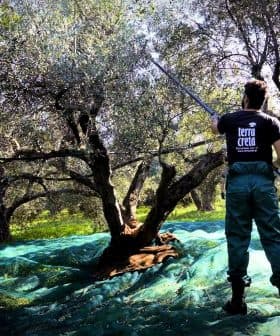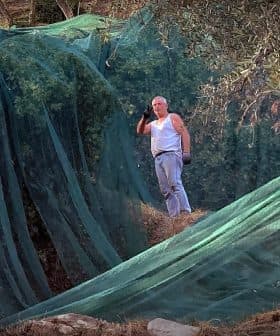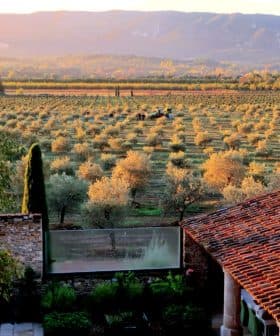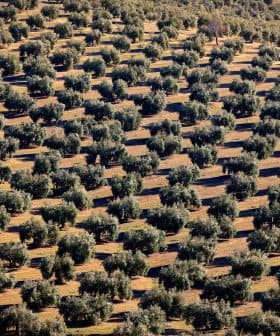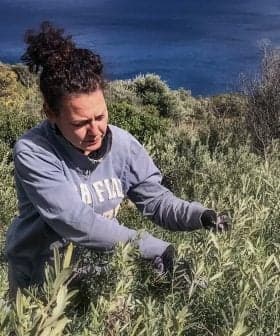Record Wins for American Producers at World Olive Oil Competition
American producers took home a record-high 56 Gold and 18 Silver Awards at the world's premier olive oil quality competition. Only Spanish and Italian producers received more.
 Pamela Marvel, of Grumpy Goats Farm
Pamela Marvel, of Grumpy Goats FarmAmerican producers had a record-setting year at the 2020 NYIOOC World Olive Oil Competition, receiving 74 awards, just one shy of the record. California, Texas, Georgia, and Oregon producers took home 56 Gold Awards and 18 Silver Awards, with the United States finishing third in total awards behind Spain and Italy.
Part of our continuing coverage of the 2020 NYIOOC World Olive Oil Competition.
By a number of different metrics, American producers had a record-setting year at the 2020 NYIOOC World Olive Oil Competition.
American producers received 74 awards, one shy of the record set at the 2018 edition of the competition, from a total of 120 entries. This year’s 62 percent success rate was the highest for American producers at the contest.
It feels wonderful to receive an award after all the work that went into making our certified organic extra virgin olive oil.
Of the 74 awards, producers from California, Texas, Georgia and Oregon took home a record-setting 56 Gold Awards and 18 Silver Awards. The United States received the third-highest amount of awards at the contest, finishing just behind Spain and Italy.
See Also:Special Coverage: 2020 NYIOOCOverall, 35 different American producers were awarded at the NYIOOC World Olive Oil Competition. Among the biggest winners was Pasolivo, which picked up four Gold Awards.

Pasolivo
“I was really excited and proud to receive all Gold Awards this year. It is such a wonderful feeling knowing that everyone’s hard work has paid off,” Marisa Bloch, the general manager of the Paso Robles-based company, told Olive Oil Times. “It is amazing to have your oils so well received by some of the top influencers in the olive oil industry at the most prestigious competition in the world.”
Pasolivo has entered the competition for the previous five years and won a total of 17 awards. Bloch said that focussing on quality throughout each step of the process has been key to the brand’s enduring success.

“We also mill each variety separately and taste them all individually before coming up with our blends,” she said. “Many producers do a field blend where they take all of their Tuscan olives and mill them together creating their Tuscan oil, but we like the freedom and the opportunity to hand-select which oils each year pair best together.”
While the 2019 harvest went pretty smoothly overall for the central Californian producer, Bloch said that adverse weather conditions had a significant impact on the harvest.
“The only challenge we faced this last year was that due to the heavy rains at the beginning of the year, our harvest was about a month later than normal,” she said. “This caused us to be harvesting during December and we did encounter some rains. The only challenge this poses is that you need to start and stop your harvest because you can’t pick while it is raining.”
Overall, the list of winners recorded on the Official Guide to the World’s Best Olive Oils is full of familiar names and repeat winners. However, the 2020 edition of the competition also saw a number of newcomers being awarded for the first time.
Among these newly anointed was Pitchouline, which won a Gold Award for their organic medium blend.
“This is our first time entering the NYIOOC and our second year producing extra virgin olive oil,” co-owner Fabien Tremoulet told Olive Oil Times. “It feels wonderful to receive an award after all the work that went into making our certified organic extra virgin olive oil and, more so, the long hard journey to nurture our farm and bring fertility back to our soil.”
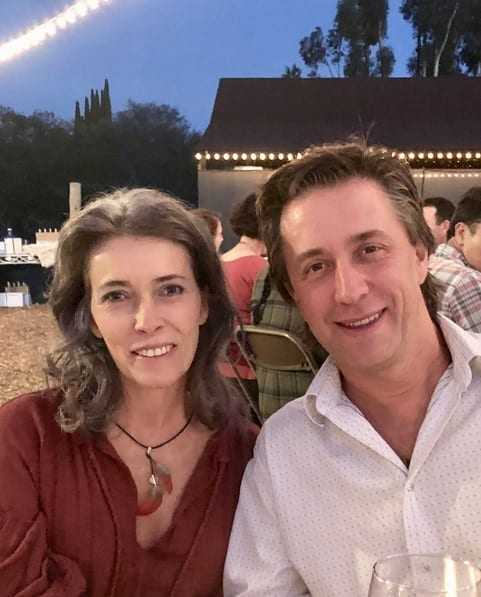
Pitchouline’s olive groves are located in the Deluz Valley, roughly halfway between Los Angeles and San Diego. Tremoulet said that the combination of the unique microclimate and careful stewardship of the soil is mainly responsible for this year’s Gold.
“The Deluz Valley offers a very unique climate with a Mediterranean-like microclimate providing our olive trees a perfect blend of daytime heat and low nighttime temperatures,” he said. “Right from the infancy of our vision, we believed that the quality of our olive oil starts in the soil and made a commitment to never use chemicals. We prepare our own biodynamic compost and use cover crops.”
While the weather was not too much of an issue for Pitchouline this year, Tremoulet said that labor costs and the overall margins at which he and his wife are able to sell their product presents the biggest challenge.
“Labor availability and cost was our main challenge last year,” he said. “It is unstable and the costliest factor in the production of our extra virgin olive oil.”
Along with labor availability, some producers also had trouble finding available mills to transform their olives, especially producers of certified organic extra virgin olive oil.
“The milling was an issue as the mill we normally used was no longer operating and we can only use a certified organic mill,” Rich Matthews, the co-owner of Moonshadow Grove, told Olive Oil Times. “The harvest was plentiful and the pickers did a fabulous job. As we did the transport, we ended up doing three trips to the mill per day, which made a 13 hour day for [both myself and my wife, Diane], but it was worth it to get the milling done as soon as possible to ensure the best oils.”

This year, Moonshadow Grove won a Gold and Silver Award for a medium Nocerella and delicate Ascolano, respectively.
Matthews said a combination of organic farming and harvesting from old-growth trees helps separate Moonshade Grove’s extra virgin olive oils from the competition.
“As we had moved to the central coast of California, Paso Robles, we continued to use old-growth olives from northern California,” Matthews, who started producing extra virgin olive oil back in 2010 in Oroville, a town about 3.5 hours north of San Francisco, said. “We pride ourselves in producing certified (CCOF) organic oils. This requires certification of the olives, the mill and the bottling.”
While finding a certified organic mill caused headaches for the Matthews, another California producer has come up with a workaround and brings his state-of-the-art mill to the olives.
“We developed what we believe is the most exciting food project of all time, wherein we have designed, financed and built a mobile mill fully equipped with state-of-the-art olive processing equipment from Tuscany,” Samir Bayraktar, the founder and CEO of Olive Truck told Olive Oil Times.
“[We can] drive the vehicle directly into the California olive groves, harvest and ‘press’ up to 500 kilograms (1,100 lbs) of olives per hour, and ultimately, within seconds, deliver the freshest, finest extra virgin olive oil with the highest polyphenol antioxidant count,” he added.
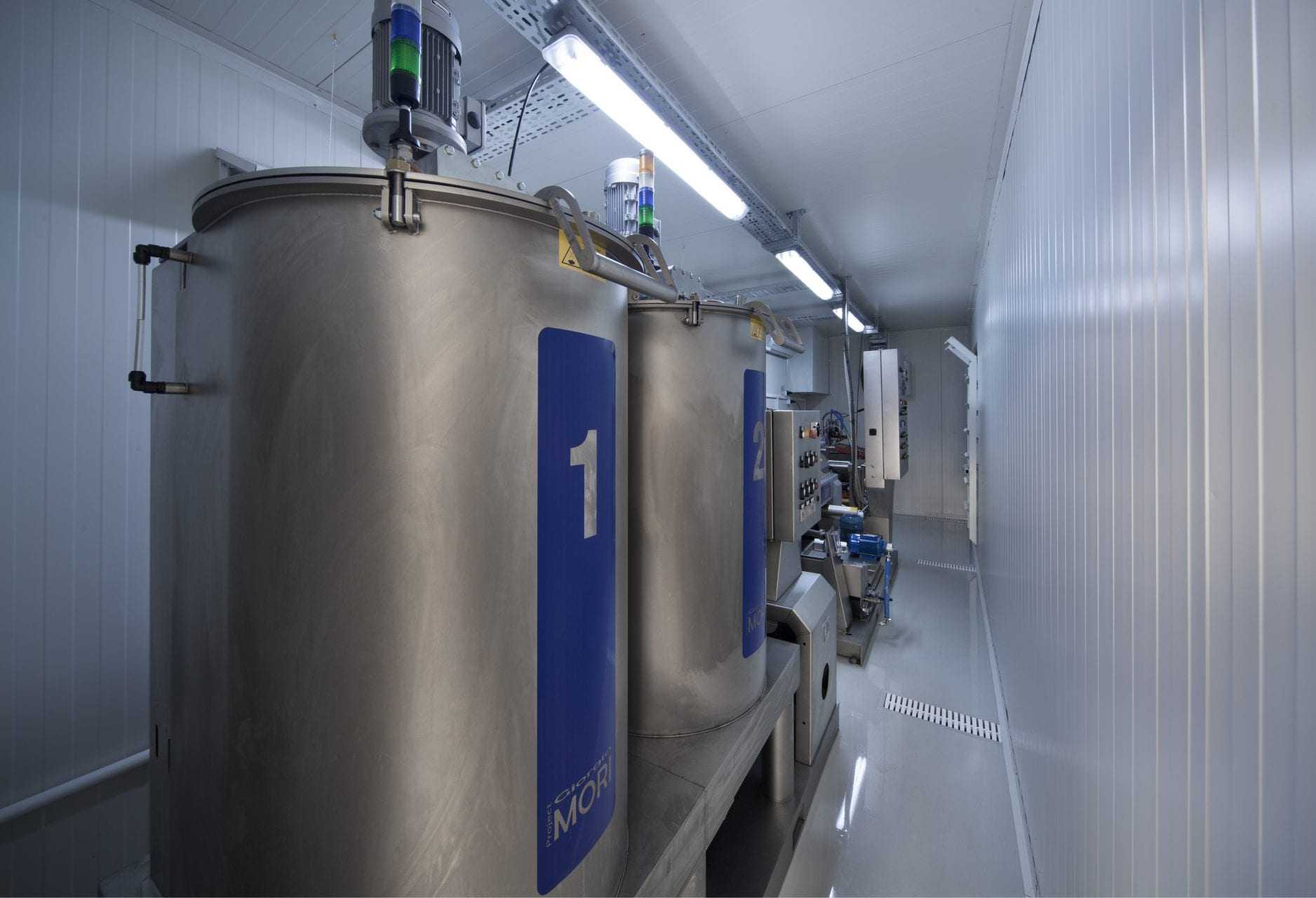
This year is the first time for Olive Truck at the NYIOOC, which took home three Gold Awards for a robust Hojiblanca, robust Picual and a medium blend. However, it is the third time for Bayraktar, who won two Gold Awards with his previous company, Nar Gourmet.
Bayraktar said his three awards at the NYIOOC serve as motivation for him to continue innovating and producing the best olive oil that he can.
While 2019 was overall a good year, he added that climate change presented the largest challenge for him moving forwards.
“The biggest challenge now and, unfortunately in the future, is climate change and its side effects. The season is very short if you focus on the ultra-quality olive oil production, since you mostly need to deal with early harvested olives,” Bayraktar said. “The other big challenge is the lack of experience regarding some farming practices in the region, especially over-irrigating. This is a true nightmare if you focus on achieving and maintaining a high polyphenol content in the olive oil.”
While the vast majority of American winners at the NYIOOC were California producers, two Golds and three Silvers were awarded to olive oil makers from outside of the Golden State.
Among these producers was Woodpecker Trail Olive Farm. The southern Georgian producer earned a Silver Award for its medium Arbequina.
“This is our first entry, from our first press, which makes this Silver award even more impressive,” CEO Curtis Poling, who runs the farm with his wife, Tracy, said. “We are very excited that our extra virgin olive oil lived up to our expectations.”
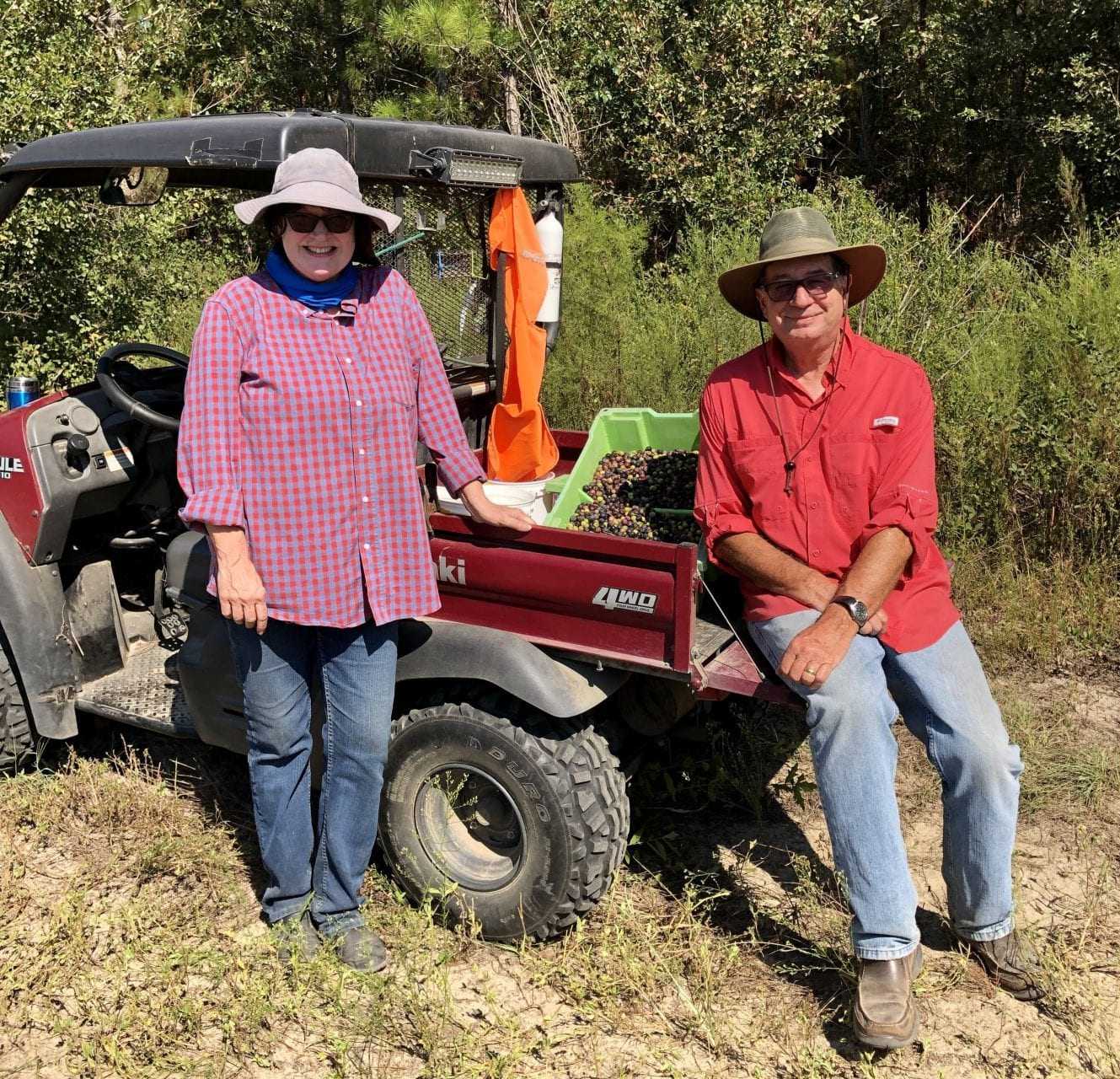
Poling said that producing olive oil in Georgia brings with it a unique set of problems, ones not faced as often by producers in California or Texas.
“Georgia is still working on getting a larger part of the extra virgin olive oil market,” he said. “We have different soil and weather conditions. A particular challenge in South Georgia is dealing with the heat and humidity.”
However, Poling and his wife believe this year’s award will help put Georgia on the world olive oil map and bring them some international attention.
“I believe that this prestigious award will bring much desired attention to our brand Woodpecker Trail Olive Farm and the historic Woodpecker Trail Route (Highway 121), which is where we are located,” Poling said.



